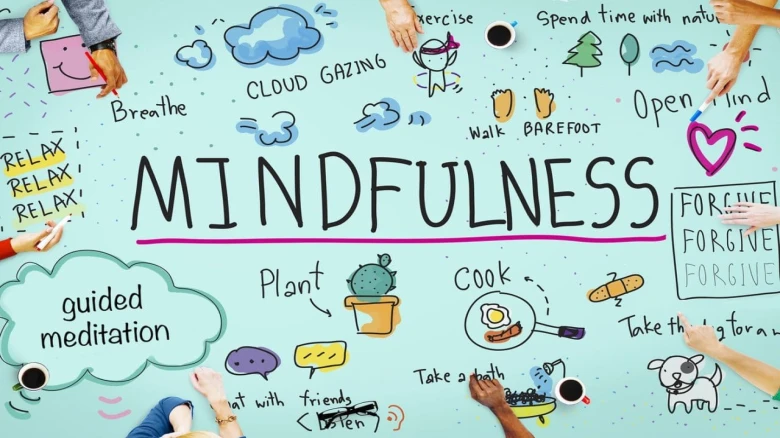International

By encouraging us to take thoughtful breaks that help us focus on the present, practicing mindfulness can help us deal with these problems and improve our well-being. It can teach us to respond less quickly.
Digital
Desk: Being aware is staying in the here and now without worrying too much
about the past or the future. We achieve the finest outcomes and feel the
happiest when we focus on the here and now and carry out a task without being
distracted by our opinions, unfavorable feelings, or tension. However, in
today's fast-paced world, mindfulness is becoming more and more challenging
because we have more on our plates than we can handle and end up doing
everything in a hurried manner, which negatively impacts our mental health and
prevents us from experiencing any joy or satisfaction we might otherwise feel.
"We
are all running a marathon while juggling numerous tasks in the fast-paced
world of today. In addition to attempting to be top-notch employees, we also
want to be terrific parents, partners, and friends. This huge rush to
accomplish everything and be everywhere may have a negative impact on our
health, leading us to struggle with stress, worry, and lack of sleep,"
explains Prakriti Poddar, global head of RoundGlass and an expert in mental
health.
Rescue
by Mindfulness
By
encouraging us to take thoughtful breaks that help us focus on the present,
practicing mindfulness can help us deal with these problems and improve our
well-being. It can teach us to respond less quickly.
According
to scientific studies, after a few months of practice, the amygdala- the brain
region responsible for emotions, emotional behaviour, and motivation- becomes
calmer.
In
order to ride our hard situations with grace and release ourselves from
powerful negative emotions, being mindful demands us to operate as witnesses of
our emotions, thoughts, and actions "Poddar explains.
How
to Be Present: A Guide
Anytime
and anywhere is a good place to practice mindfulness. You will learn that
staying in the present can be a freeing experience and alter your entire
outlook with continued practice.
Poddar
suggests five daily habits that can make you more mindful.
Leave A Comment